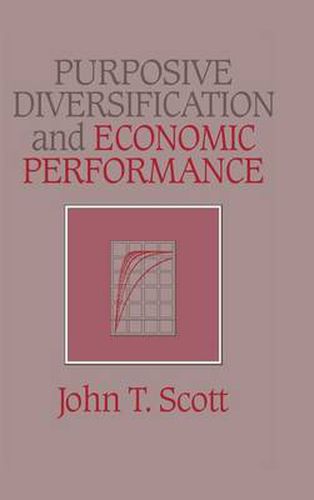Readings Newsletter
Become a Readings Member to make your shopping experience even easier.
Sign in or sign up for free!
You’re not far away from qualifying for FREE standard shipping within Australia
You’ve qualified for FREE standard shipping within Australia
The cart is loading…






This book examines product-line diversification of large manufacturing firms. It introduces and applies methodology that discerns groups of manufacturing industries related by complementarities in production, marketing, distribution, and research and development activities. Manufacturing firms intentionally vary production to exploit these complementarities, and Professor Scott uses evidence from U.S. manaufacturing to explore hypotheses about such purposive diversification and ensuing economic performance, including product diversification’s effects on both static efficiency and the optimality of R&D investment. This study yields new perspectives on the policy debate about cooperation versus competition among firms: will industrial performance be better if leading firms cooperate on research, production, and marketing? Professor Scott shows that the answers depend on circumstances that vary with different industrial environments. His analysis offers insights about business strategy and public policy toward business combinations in conglomerate, vertical, and horizontal mergers and in cooperative R&D ventures.
$9.00 standard shipping within Australia
FREE standard shipping within Australia for orders over $100.00
Express & International shipping calculated at checkout
This book examines product-line diversification of large manufacturing firms. It introduces and applies methodology that discerns groups of manufacturing industries related by complementarities in production, marketing, distribution, and research and development activities. Manufacturing firms intentionally vary production to exploit these complementarities, and Professor Scott uses evidence from U.S. manaufacturing to explore hypotheses about such purposive diversification and ensuing economic performance, including product diversification’s effects on both static efficiency and the optimality of R&D investment. This study yields new perspectives on the policy debate about cooperation versus competition among firms: will industrial performance be better if leading firms cooperate on research, production, and marketing? Professor Scott shows that the answers depend on circumstances that vary with different industrial environments. His analysis offers insights about business strategy and public policy toward business combinations in conglomerate, vertical, and horizontal mergers and in cooperative R&D ventures.